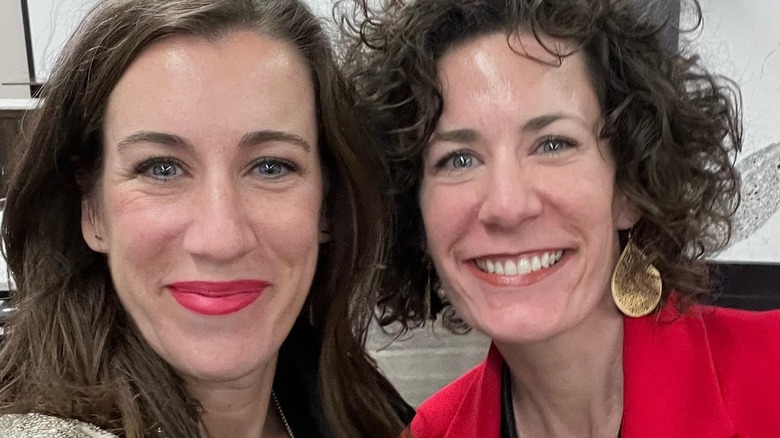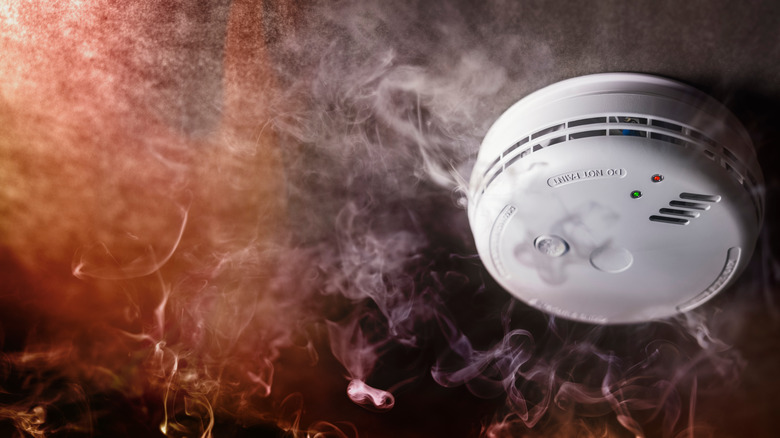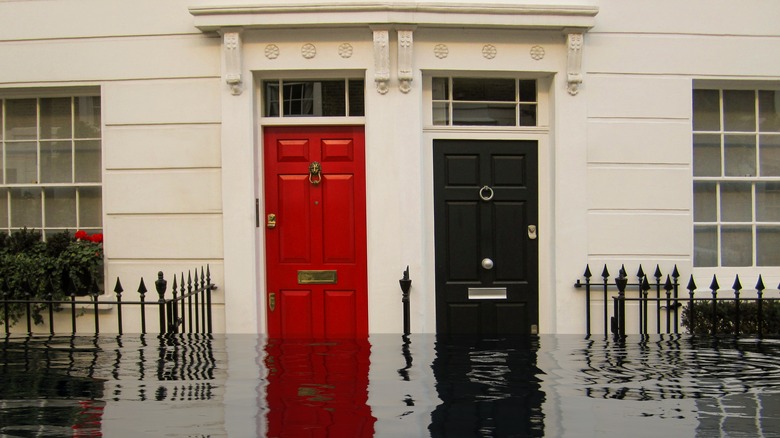Renovation 911's Lindsey Uselding And Kirsten Meehan On How To Protect Your Home From Disaster
When it comes to protecting your home, many people do what they can, like installing smoke alarms and investing in fire extinguishers. Yet, devastating flooding and fires can occur even in the most well-prepared homes. Knowing what else you can do to protect your home is something the HGTV show "Renovation 911" aims to tackle.
In a recent interview, Lindsey Uselding and Kirsten Meehan, who are emergency restoration contractors and sisters starring in the show, share their insight into how property owners can navigate the scary and costly recovery process after a flood, fire, or other disaster strikes. They share several bits of advice not just on how to handle the aftermath but also on how to prepare for these potential risks. When asked about the one thing families can put in place immediately, Uselding shares with Realtor.com, "Have a family emergency plan. Because if your family has an emergency plan, it's second nature. You'll just execute it. If you don't have it, then you don't know what to do." No one wants to think about the "what ifs," but doing so now could help safeguard your family later.
There are steps that can be preventative
A fire can occur behind walls, from stove grease, or a faulty space heater. There's no way to prevent everything from happening. However, some preventative measures could help slow the spread and protect your family. Meehan shares via Realtor.com one must for homeowners to take now in installing a fire-rated door. "They're typically required by code between a garage and a living space if your home is newer." If it's time to upgrade this door to your home, it may be well worth spending a bit more for one that can stop a garage fire from spreading into the home.
There are other steps you can take to prevent fires, like avoiding using space heaters or, if you need to use them, keeping them at least 3 feet away from anything flammable. If you start a fire in the fireplace, don't go to bed until it's out fully. It's also wise never to use your oven as a way to heat your home.
Consider flooding protections as well
Fires are not the only risk, though. Flooding is a common problem, and while you may not be able to quell the water coming in from a torrential downpour, you may be able to minimize flooding caused from within the home. Meehan shares via Realtor.com, "We recommend lint traps to keep lint from going down your drain and clogging drains or hair snakes. Keep those drains clear."
If your home is in a risky area, consider the investment in a sump pump. When it rains, head outside to see if water is pooling around the foundation of your home, which could indicate the need for proper drainage installation. Grading the landscape away from your home could prevent water from getting inside. Also, ensure you have your drain and sewer lines jetted as a type of preventative maintenance. Work with your local plumber to have your overall plumbing system inspected for areas of potential failure, too. You may benefit from installing flood vents to allow water to move through a garage or crawlspace to prevent it from coming into the home through the foundation.


